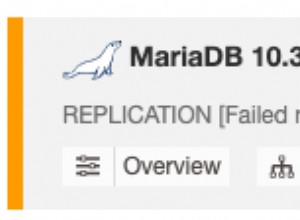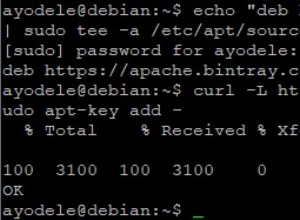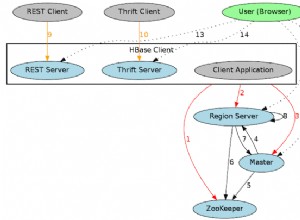dos consejos generales:1.) no tenga miedo de duplicar. A menudo es una buena idea almacenar los mismos datos con diferentes formatos en diferentes colecciones.
2.) si desea ordenar y resumir cosas, es útil contar campos en todas partes. El método de actualización atómica de mongodb junto con los comandos upsert facilitan el conteo y la adición de campos a los documentos existentes.
Lo siguiente es ciertamente defectuoso porque está escrito desde la parte superior de mi cabeza. Pero mejor malos ejemplos que ningún ejemplo, pensé;)
colletion tweets:
{
tweetid: 123,
timeTweeted: 123123234, //exact time in milliseconds
dayInMillis: 123412343, //the day of the tweet kl 00:00:00
text: 'a tweet with a https://lin.k and an https://u.rl',
links: [
'https://lin.k',
'https://u.rl'
],
linkCount: 2
}
collection links:
{
url: 'https://lin.k'
totalCount: 17,
daycounts: {
1232345543354: 5, //key: the day of the tweet kl 00:00:00
1234123423442: 2,
1234354534535: 10
}
}
añadir nuevo tuit:
db.x.tweets.insert({...}) //simply insert new document with all fields
//for each found link:
var upsert = true;
var toFind = { url: '...'};
var updateObj = {'$inc': {'totalCount': 1, 'daycounts.12342342': 1 } }; //12342342 is the day of the tweet
db.x.links.update(toFind, updateObj, upsert);
¿Obtener los diez enlaces principales ordenados por número de tweets que tienen?
db.x.links.find().sort({'totalCount:-1'}).limit(10);
¿Obtener el enlace más tuiteado para una fecha específica?
db.x.links.find({'$gt':{'daycount.123413453':0}}).sort({'daycount.123413453':-1}).limit(1); //123413453 is the day you're after
¿Obtener los tweets para un enlace?
db.x.tweets.find({'links': 'https://lin.k'});
¿Obtener los diez últimos tweets?
db.x.tweets.find().sort({'timeTweeted': -1}, -1).limit(10);




